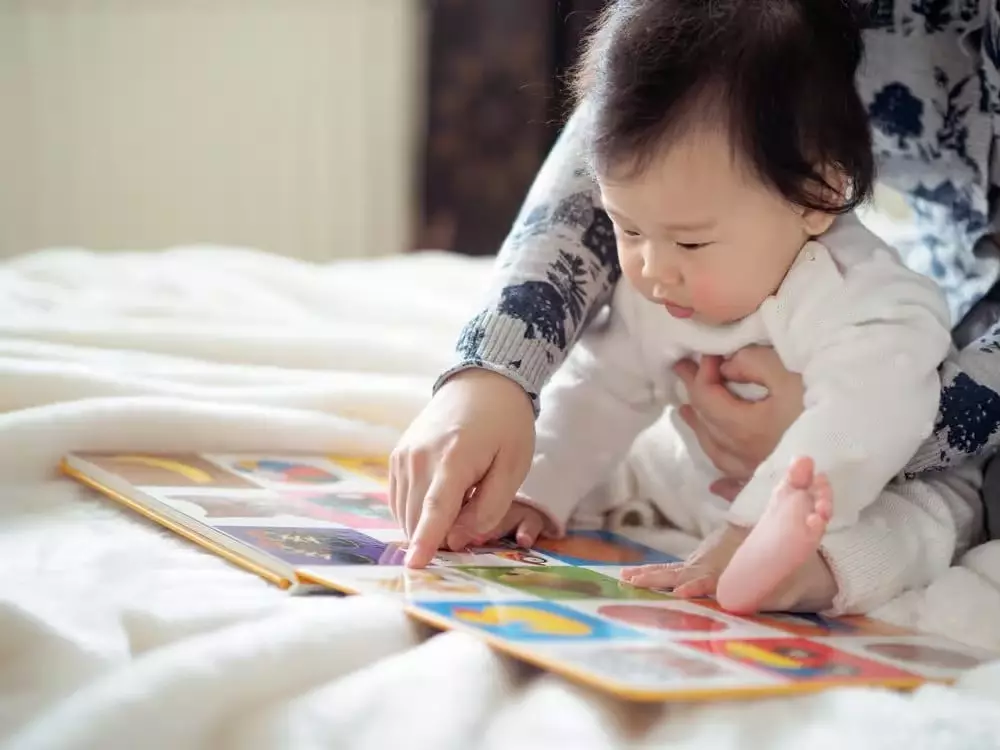In an age characterized by rapid technological advancement and digital distractions, parents are finding innovative ways to engage their young children, with reading remaining a timeless classic. The recent push by local libraries urging parents to achieve the ambitious goal of reading 1,000 books before kindergarten may seem daunting, yet it offers a profound exploration into the advantages of early literacy. The habits we form in these formative years play an integral role in shaping a child’s future, potentially influencing their educational journeys and lifelong appreciation for literature.
Experts advocate strongly for early reading. According to the American Academy of Pediatrics, the cognitive and emotional benefits of reading to infants cannot be overstated. Early exposure to written language, even when a child is little more than a bundle of curiosity, lays the foundation for a lifetime of learning. It nurtures essential brain development, enhances language skills, and solidifies the parent-child bond at a crucial juncture in a child’s growth. The relationship developed through story sessions can foster a love for literature that transcends the pages of a book, embedding values of empathy and creativity deep within their psyche.
Parental Engagement Beyond the Pages
While many parents may feel self-conscious reading to a seemingly indifferent infant, studies indicate that these early interactions have a lasting impact. During the sixth annual Kids & Family Reading Report conducted by Scholastic, data revealed that approximately 75% of parents initiate reading to their children before their first birthday. The clear upward trend since 2014 indicates a growing recognition of the importance of these interactions.
Moreover, the findings underscore that many parents are eager to adapt their reading habits to their child’s preferences right from the start. It is reported that nearly two-thirds of parents read multiple books in one sitting, as children show preferences and even exercise choice in which stories captivate them. These patterns not only encourage repeated reading sessions—but they also exemplify the engagement necessary for children to develop their own sense of narrative and imagination.
The Make-Believe World of Choices
Ironically, this autonomy over reading material—where toddlers seek out their favorite tales—can create a complex family dynamic. The relatable anecdote of a mother hiding their child’s favorite book, “Brown Bear, Brown Bear,” to introduce fresh narratives speaks volumes about the negotiation of interests in parent-child interactions. This tug-of-war is symptomatic of a broader principle: that instilling literacy is not just about the act of reading but also about cultivating a love affair with storytelling. The more children feel empowered in their choices, the more they are likely to seek literature independently as they develop.
Research aligns with this philosophy, showing that quality reading sessions during infancy greatly predict literacy outcomes later on. Notably, Carolyn Cates, the lead researcher on a pivotal study, demonstrated that children read to during their infancy not only developed expansive vocabularies but also exhibited early writing capabilities. The emphasis here is profound: children’s interactions with literature during infancy can yield significant dividends four years into their academic careers.
Charting a New Path in Parenting
Lucky for today’s parents, an array of resources exist to support these endeavors. Apps like ParentPal provide integrated platforms that enable parents to meticulously track development milestones, including reading habits. This all-in-one solution offers daily plans filled with engaging activities that coincide beautifully with children’s growth stages.
With dedicated features aimed at nurturing key interactions, it becomes easier for parents to incorporate reading into daily routines seamlessly. This not only enriches children’s lives through literature but also empowers parents to actively engage in their child’s developmental processes without the constant worry that they are falling behind.
In this technological age, the synthesis of traditional reading and contemporary solutions represents a unique opportunity to refashion our relationships with literature. By fostering a nurturing environment for early reading, we inspire future generations to possess both the literacy skills necessary for their education and the imaginative vistas that enrich their lives.
The evidence is conclusive: as more parents embrace reading aloud, we may be on the cusp of producing a generation of exceptionally literate and imaginative individuals, all thanks to the enduring power of stories and the parent-child connections that foster them. Let this transformative journey of reading deploy the profound benefits of literature into the consciousness of young minds worldwide.

